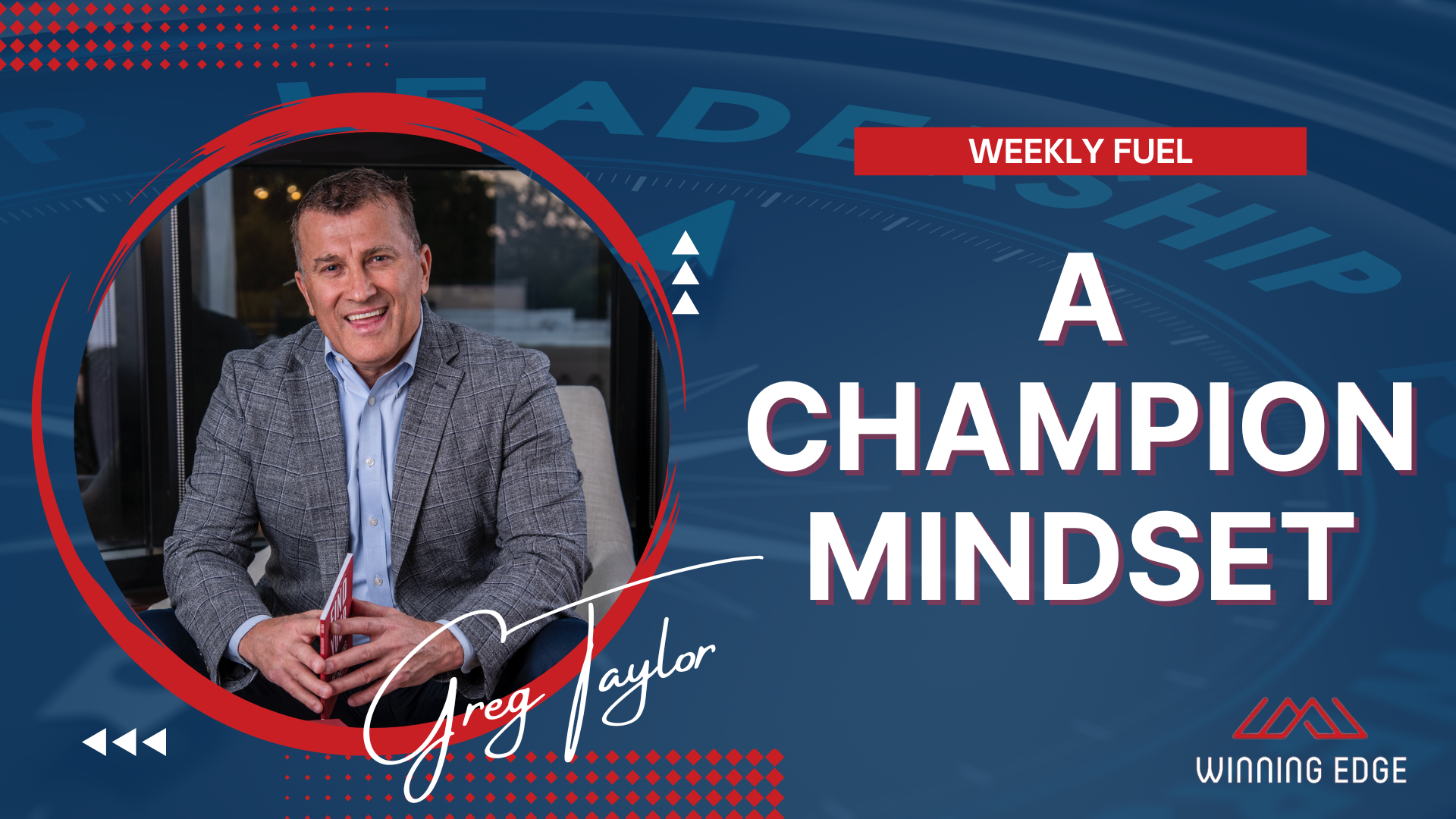
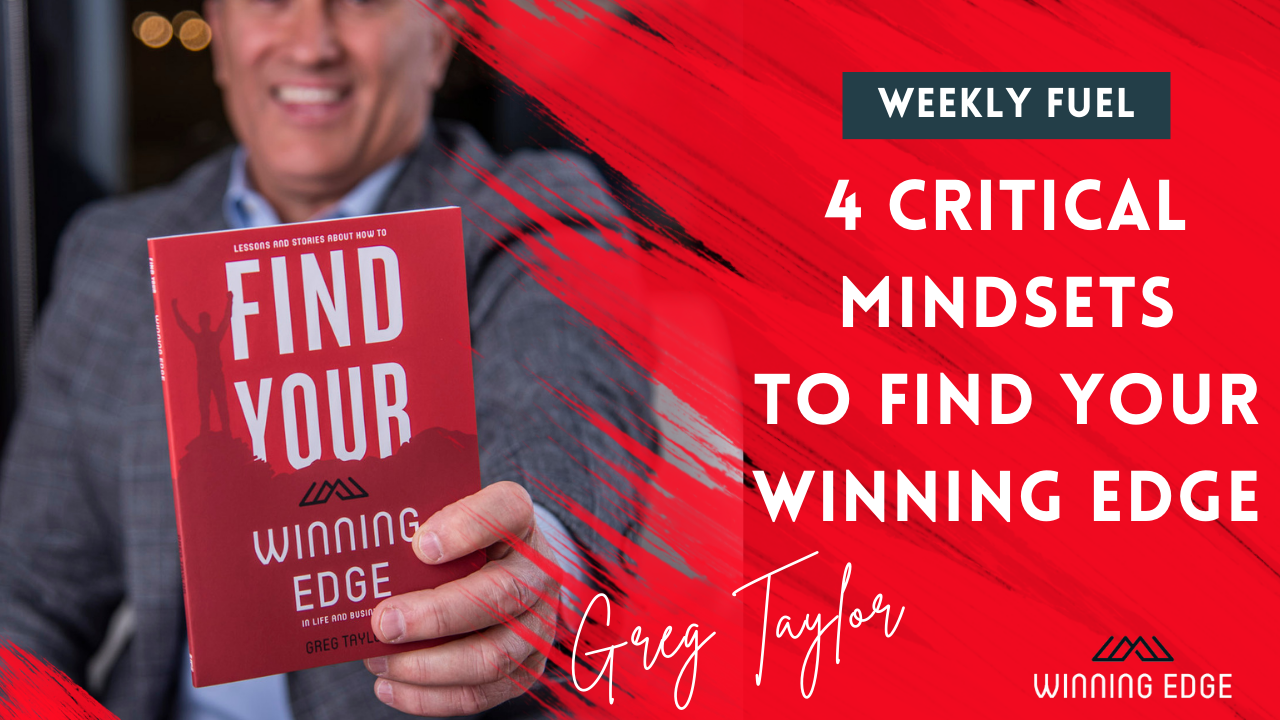
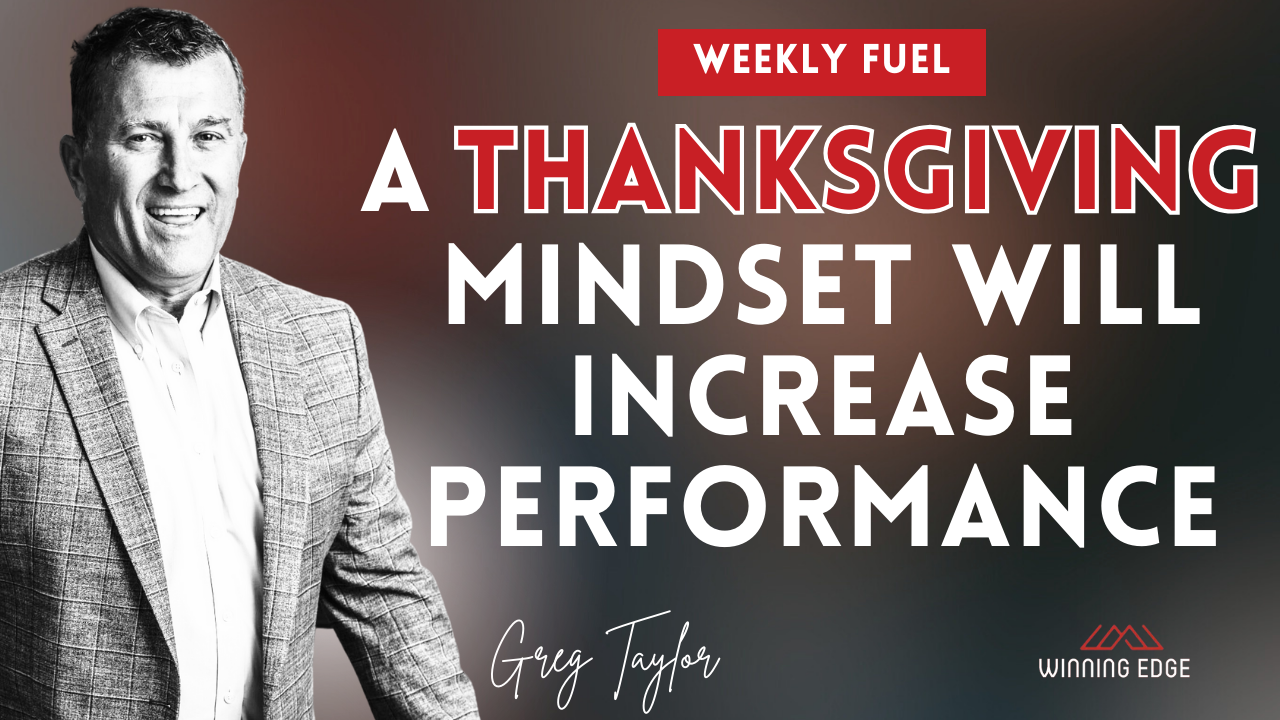
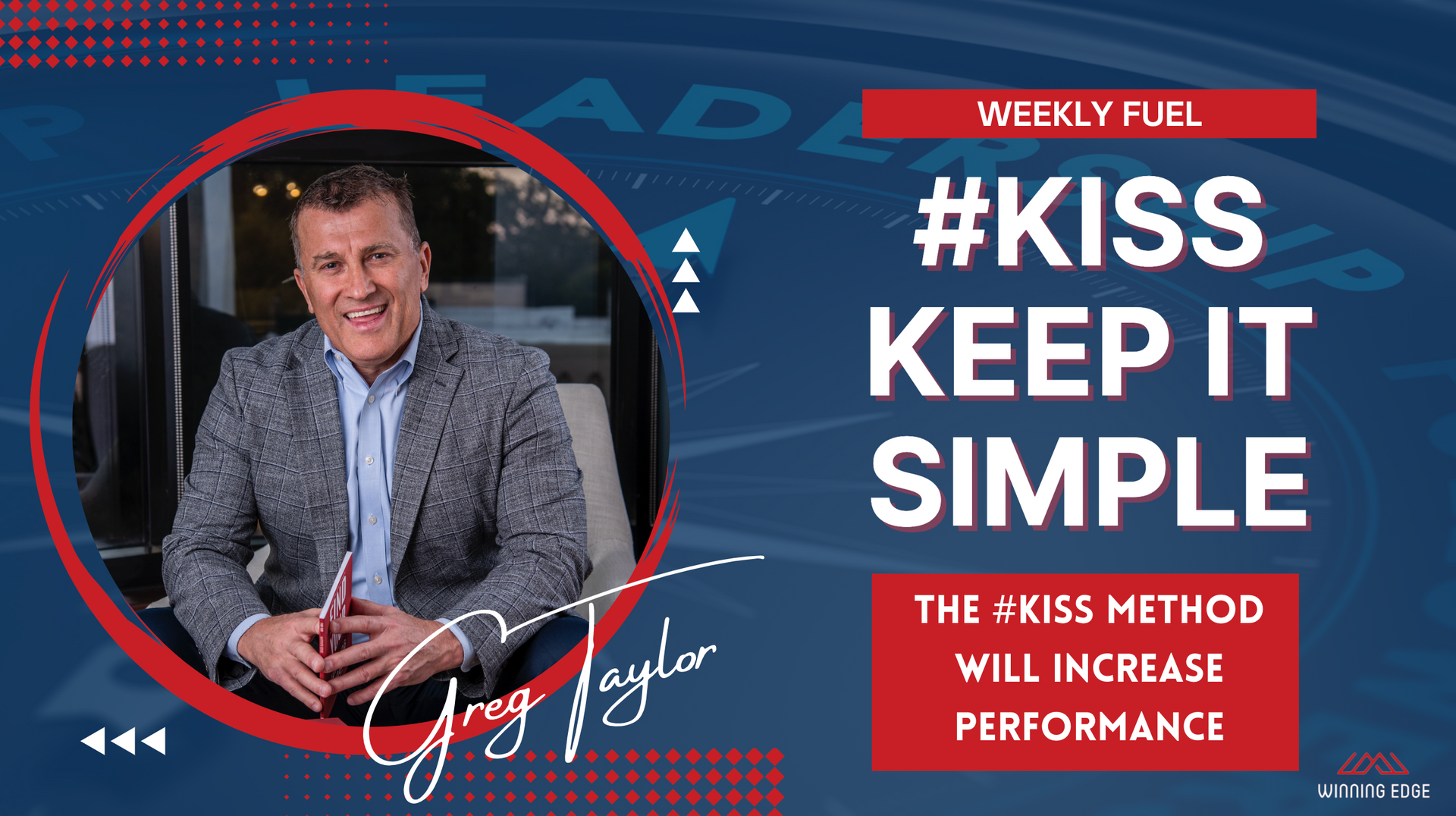
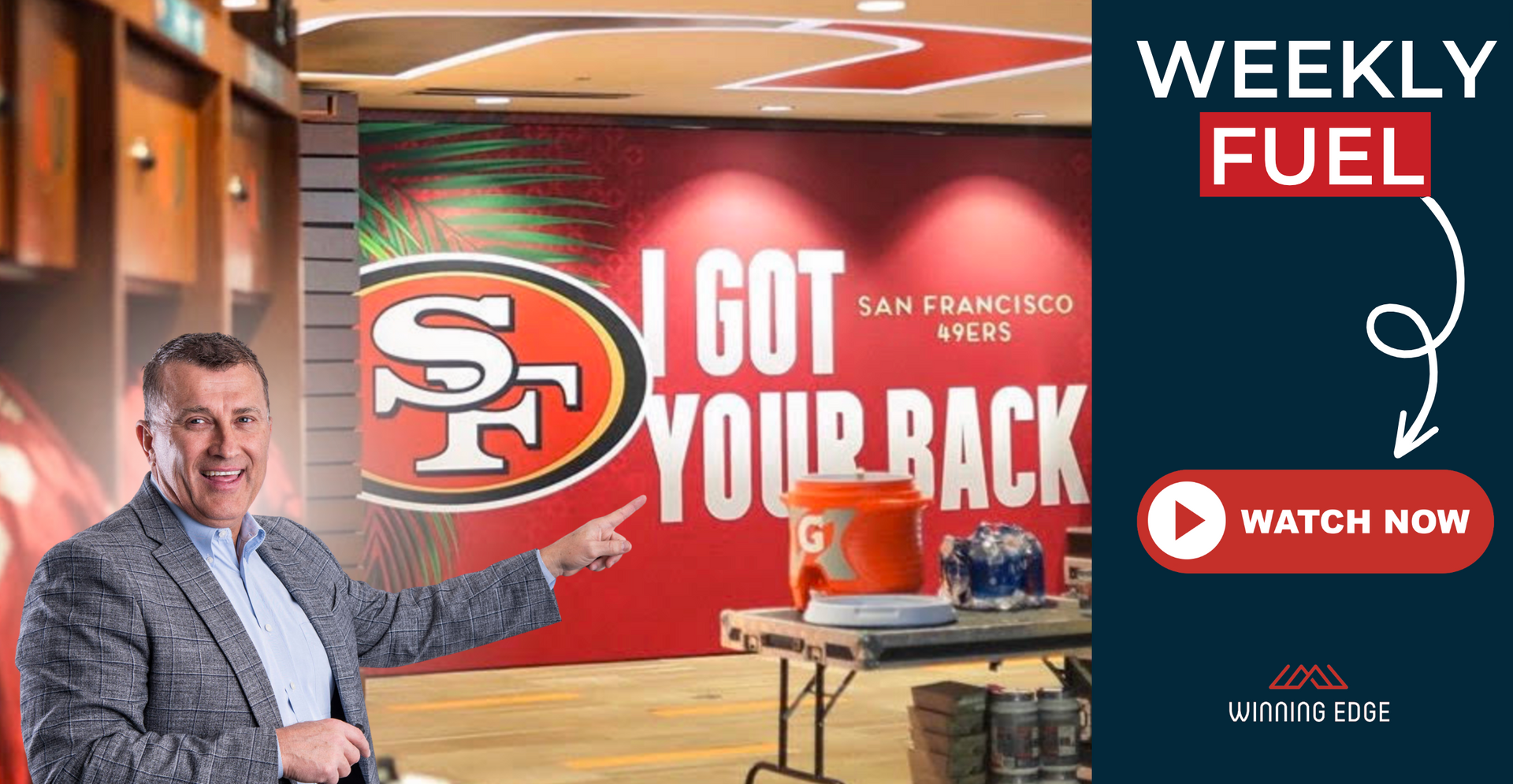
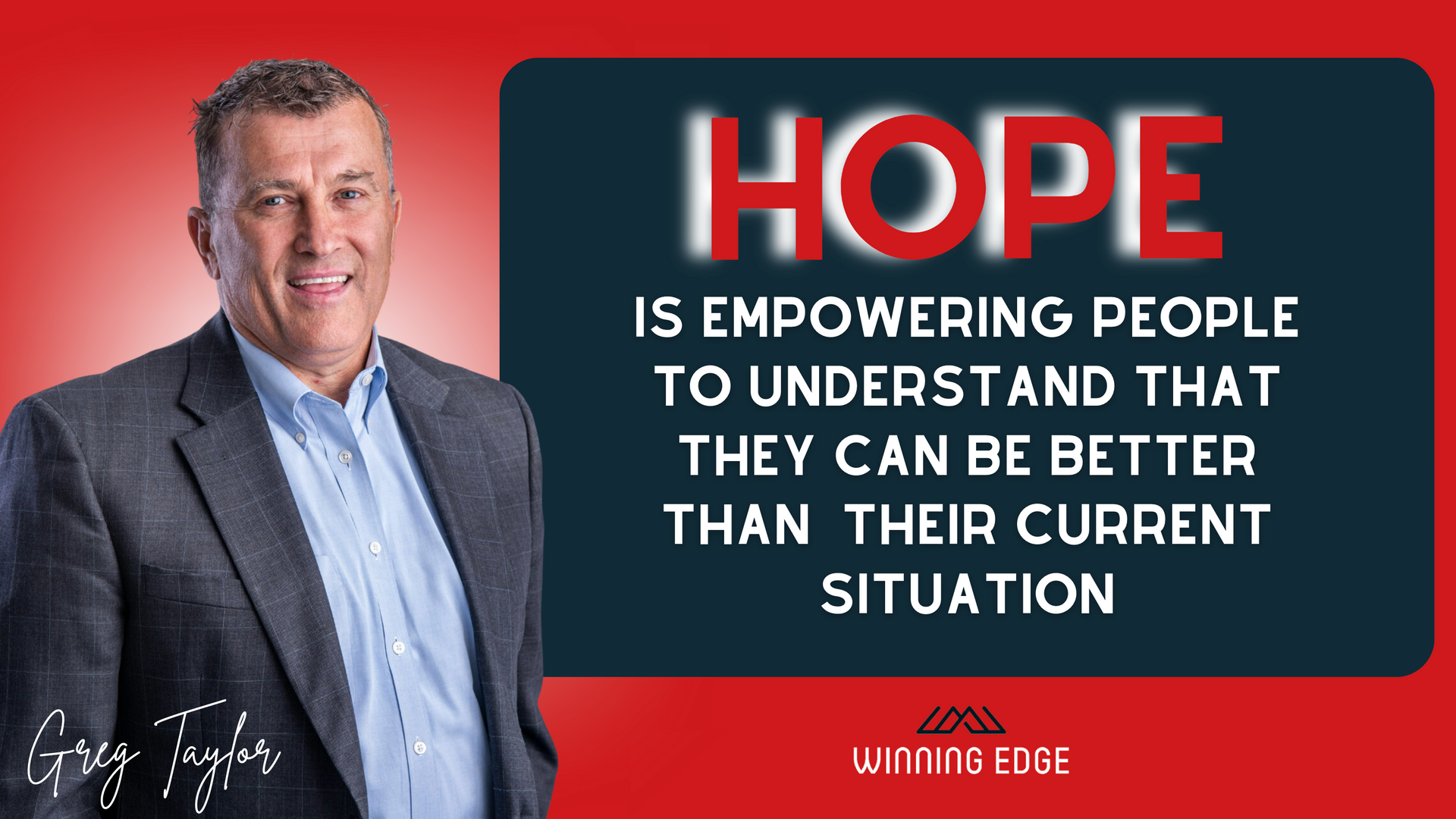


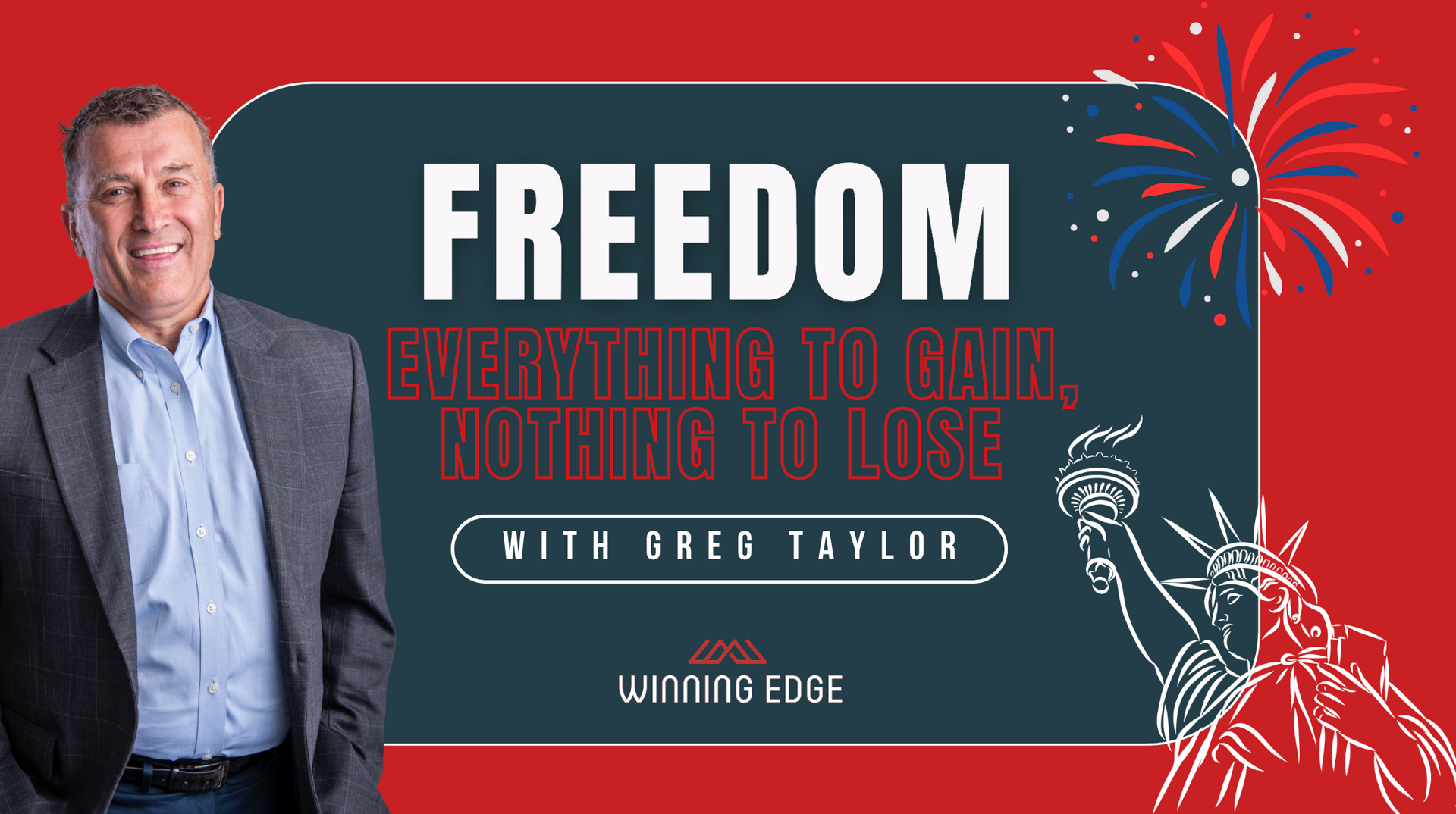

Do you ever wonder, "Is this all there is?" If you're longing for a more meaningful career experience, you're not alone. That nagging feeling of being stuck can be incredibly discouraging. But here's the good news: you can break free! Today, Phillip Deas offers a roadmap to overcome career stagnation and find the spark that sets your professional path ablaze. Phillip is a championship-winning athlete and coach, international speaker, and motivator. Tune in to explore actionable steps to reignite your passion and transform your work into something fulfilling.
---
I would like to introduce our guest on this episode. His name is Phillip Deas. Phillip Deas is a championship-winning quarterback and football coach. His achievements on the field prepare him for his success off the field as an international speaker, purpose activator, and high-performance coach. For years, Phillip has been helping individuals to achieve their potential in sports and life.
He is making his practical and powerful approach to personal growth and self-leadership available to businesses and high-capacity individuals. Phillip empowers individuals to take ownership of their lives while equipping them with the mindsets and tools necessary to transform their lives. Through instruction and inspiration, he assists people in seeing what is possible and helping them create the pathway forward.
Get ready, Mr. Deas will drop some nuggets on us. As we say here at the show, if it's not on paper, it's vapor. Get your pad and pen ready to go and have three things you need to figure out how to find those three nuggets that impact you. I'm going to challenge you, can you determine the one nugget that can knock all the dominoes down? It's called the domino effect. Get ready. Here we go. Let's give Phillip Deas a great welcome.
---
Mr. Phillip, welcome.
Thank you so much, Greg. I’m happy to be here with you.
Coach, I'm excited that you're here. I don't know where we're going to head in this inspirational leader discussion but I know it's going to be fun, exciting, and very educational for the people who are reading. We want to thank everybody that's reading. We love you. We inspire you to be an inspiration to other people and that's what this world needs, a lot more inspirational leaders who care about people who are doing the right things to do what that takes to do that. That's what we're going to be talking about, coach.
I’ll start with the definition of what a leader is. A leader is a person who can inspire another person to take a journey that they're just not going to take by themselves. If you're a current leader or thinking about being a leader, lead people that would drain everything about you. For you to be a leader, you must focus on that word, “How do I inspire another person to do something that's not going to do by themselves?” Out of the gate, coach, let's talk about your best leader and why.
When I think about my best leader, I think twofold. I have been blessed to have amazing leaders. My story is I have had far more great leaders than I have had bad leaders. I don't mean good leaders and bad leaders. I have been blessed to have some great leaders in my life and probably one was my pastor and high school football coach, Denny Duron, who became my father-in-law.
In those formative years of being in middle school and high school, the thing that he did for me was to model excellence, what it looks like to be an excellent man, and live with excellence daily. The other word would be expansion. Expand your mind to what is possible. Those two things left a huge imprint on me as he modeled excellence for us, excellence in his faith journey, excellence in how he treated other people, and excellence in all of these different areas. This whole expansion of the mind, dreaming bigger and thinking bigger, was very profound. Leaving high school, I had a chance to play for Mack Brown at the University of North Carolina.
The thing that I learned from him was process and positivity. There was a process and it was an ultimate just trust the process. You want the results but the thing about it is he was never about the results. He says, “Are we doing what we need to be doing to the best that we can do it?” If we're doing that, then the outcome is going to take care of itself. It’s the process and so much positivity. He was the most positive coach that I had ever been around.
He was positive. Every meeting and practice started with positivity and ended with positivity. It was filled with positivity all in the middle. Not to say that he wouldn't get on you, coach you hard, and have a high demand for his players but it was under the umbrella of positivity. Positivity was a part of that process for him. He believed in the process and positivity. Those two leaders shaped so much of who I am in both of those capacities.
John Maxwell says the inspiration formula is what you know, see, and feel about a person. Tell me something, what did you see them do to get you to trust them? You gave them your trust and trust is the electricity to the inspiration. What did you see, know, or feel? How did they make you feel that you would give them that trust because you would probably run through a wall for it?
Number one, it starts with reputation. What are other people saying about them before you ever have any interaction with them? That's why we have to be so careful with our reputation because it's all we have. That's all you got. It’s whenever people are telling a story about this person before you even have a chance to play for them or interact with them. These are the things that people are saying about them. Before you even get there, there's already such a high level of trust.
You watch and observe. You see how they treat people, how they respond to adversity, and how they deal with you. It’s layer upon layer. You come in and there's already this reputation but then when they interact with you and then you see them interacting with others, it's layer upon layer. They are constantly investing in that trust account. When they make those consistent deposits in that trust account, then you're like, “Whatever you say, I'm in. I'm ready.”
You have proven that you care about me and you're going to do what's best for us, this team, and this organization. You've proven these things. I want to play for you, give you my best, and go all out. Whatever that is, I'll work harder in the off-season and do whatever because of the type of person that they were. Both of those guys, the core of who they were was inspirational, and that inspiration came from that deep trust.
If it's not on paper, it's vapor. Someone will stop here and say some nuggets. You dropped a bunch of nuggets there. This could be the title of this session here. Expand your mind to see what is possible. Since I’ve done leadership coaching, I've challenged myself because I'm not a marketing person and promoter of myself. It's been a real challenge for me to do that.
I have more of an altruistic personality, which means I'll do stuff for free. I love and care for people. If I'm trying to grow a business, that doesn't work out very well. I've got to find out what's hindering me. How do I get someone to help me make that strength better? How do I find someone to do that for me too? That's a deeper conversation.
Here's another note, invest in the trust account and reputation protection. Protect your reputation. My mentors have told me, “Greg, your reputation will beat you there. It will get to where you're going before you'll ever get there. Protect your reputation. Those are some nuggets out of those great leaders. I don't know Mack Brown but I know he's a great guy. Why do I know he's a great guy, coach? It’s because he's from Cookeville, Tennessee.
No question. That's right.
It's where Trenton Taylor was born. I lived there for eight years and worked for Averitt Express. It was an amazing company. What about who is your worst leader and why? No names. What did you see them do? How did they make you feel? What do you know about?
Much of my formative life is in athletics. I had a coach who was the opposite of Mack Brown. He was never focused on the process, always emotional with the result, and was on the opposite side of positivity, which is negativity. Nothing was ever good enough. We never worked hard and gave enough. Whatever it was, it was never enough or good. There was so much negativity.
There was so much emotion with the result. It created this tension within the team. Looking back, you can see and feel it. That was interesting because, with Mac Brown, we had so much success. I've been going from North Carolina to the University of Texas, taking them to a national championship and multiple ten-win seasons in a row there at the University of Texas. It’s that process and positivity. You can see the results of that positivity.
When I went to North Carolina, it was the one thing that people would say about him. They would try to make a name like, “He's not hard and demanding enough. He's not your typical football coach. You go back to the '80s and the '90s. He's not enough of that. He's too kind, nice, and positive.” He proved this through his journey in North Carolina. In his first time there at North Carolina, he never had fewer wins in ten straight seasons than he had the year before. When he got there, there were zero wins.
Every year, he had more wins than the year before, nevertheless. He built on that. When he went to Texas, it speaks for himself but it’s that power of positivity, even in a football locker room. To have another guy who was all of what you would think of the traditional football coach, kicking the chairs, punching the table, and all that. Not near the success that Mac Brown has had. That goes to show when you want people to excel, they have to be able to trust you.
When you want people to excel, they need to be able to trust you.
When you're emotional about the results, it’s like, “I don't know who I'm getting or who's going to show up in the locker room. How are you going to speak to me, treat me, or see me?” You never know because you're emotional with the results. The negativity is, “I don't want to go out there and bust my butt for you because it's not going to be good enough. You're not going to clap for me, cheer for me, celebrate me, or congratulate me. It's not going to be enough. I'm not going to want to put everything in there.” The contrast of those two was good for me to see there's so much power in positivity.
That's good because the nugget in there that I got out of that was inconsistency will drive people away from you.
Inconsistency will drive people away from you.
It breaks trust. There's no doubt.
There's no trust. When I go into organizations, the first thing I want to understand is, “Tell me about your executive tenure and your upper level, lower level, middle level, managers tenure, and people's tenure.” That tells me everything because if their tenure is managers are 1 to 2 years, and I've been in companies where their total management has only been there 1 to 2 years, and they're 30 years in business, something is going wrong there. You said two words right there.
Based on the years of watching this and continuing to gather information, it's inconsistency and emotion. You said it. You don't know who's going to show up. I've been in those toxic environments a couple of times. You're sitting there like, “I don't know what to do.” I'm not going to become better every day. In trusting the process, there is no process. It's his emotions. That can’t inspire people like that. If somebody out there makes people feel that you're not trustworthy, it could be from consistency and you're emotional. That was GT.
My wife is probably the best leadership coach I've had. She ain't afraid to give it to me but she understands how to talk to me without making me mad. She learned that over many years, Phillip. She said, “Can I say something here? This is not helping your sons or me. You're pushing us away from you based on your inconsistency and emotions. You got to calm down.” I use the word a thermostat leader.
I love it when my clients call me back saying, “I was being a thermostat yesterday. I wanted to yell and scream or do something stupid. I heard you on my shoulder saying, “Be a thermostat, Doug. Don't let them bother you. You have to be able to walk out the door and become untouchable.’” What are some key factors that's helped you be a highly successful football player, high school coach, and leading people? What are some of the key things that you've learned to help you step to where you're stepping?
It starts with character because when we're talking about reputation and trust, that's what those things are built on. Who you are? Everything for me revolves around character. I define character as how we're living. That is the essence of character because it is your words, behaviors, habits, and those things of how you are living. It is that character that is going to be so vitally important.
Out of character, I would say is your communication. Sometimes people overlook communication and start with communication in terms of the words that you're saying to others but communication starts with what you are saying to yourself. Don't overlook your self-talk because I will never be able to communicate, lead others, and inspire others if I'm not communicating the right things to myself.
I say all the time, the most important person you're going to talk to is yourself because if you're not talking to yourself and you're not using the right language or creating the right frameworks for yourself, it's not going to matter. You're not going to be able to encourage, equip, and inspire those people around you. Communication starts with me.
Out of communication and character, I would say, “What am I doing with my competency? How am I growing in all of the different areas?” I don't want to just grow in my work. I want to grow in terms of being a better husband. I want to be a better father and a person of faith. It’s all these different compartments of life. I'm not just going to say I want to be better in one area. No. I want holistic health in my life. It means I've got to take the competency of all of these things and improve that competency.
Lastly, I would say creativity. For me, it's how well we are thinking about possibilities. How well are we thinking about the future and what can happen in my life and through my life for the good of humanity and the world? Whenever I get those things, how I am living right with my character, talking to myself, and talking to others, I start working on that competency, realizing that I'm on a growth journey. I haven't arrived yet.
I've got to increase my competency in all of these areas all of the time and then stay in that creativity. I've got to make sure I'm thinking the right way. What's my intellectual growth? Am I thinking the right things about those things? When you take those four components and bring those into your life, it's a very holistic approach in terms of helping you elevate to your highest level.
I don't know if you got this but you wrote the Four Seasons of Growth, Character, Competency, Creativity, and Communication. I don't know how the order goes. Maybe somebody needed to know that. There's a nugget for someone. There could be your domino effect.
One of the things that I say a lot is I want to help people live at their highest level possible so that they can make their biggest impact imaginable. How do I live at the highest level possible? My impact is always going to be tied to the level that I'm living. The impact that I make in the world will never be greater than the life that I'm currently living.
I've got to figure out how I raise my character, creativity, and communication. How do I get these things to the next level? Not just for me. That's where people get lost in the whole self-help thing. It's where it can disconnect people. I'm not doing this to pat myself on the back and be like, “Look at me. Look how strong my character is. Look how great I talk to myself and others. Look how great my intellectual thinking is about the future and possibilities.” No.
I do all of those things for one reason, and that is to impact the lives of other people but if I don't go there, I can't show them. I want to go there in all these areas so that I can show other people how to get there. In all of these areas, I want to live at my highest level possible so that I can make the biggest impact imaginable. Those two things are linked together.
People get turned off by maybe self-help or personal growth but I'm about other people and giving back. I'm not in it for myself. That's what they hear when they hear those words and they have those thoughts. It's, “No. You're not doing this for yourself. You're doing this so that you can help other people.” The most powerful thing about Roger Bannister of breaking that four-minute mile back in 1954. He was the first person ever to run the mile in 3 minutes and 59 seconds back in 1954. It had never been done before.
The most amazing thing about the story is in the next 2 years, 18 other people do it. When I hear the story, it's not like we want to run the four-minute mile so we can say, “Look what we did, a world record holder. Pat ourselves on the back and give us a trophy.” No. I'm doing it so that I can convince other people that it's possible. Other runners can say, “If Roger can do it, then I can do it. He went there so that I could go there, too.”
That's the power of this whole growth journey of getting to that next level because I want to take people to their next level. I can't do it if I don't put in the work to go there myself. Ultimately, it's for other people and your definition of leadership. It is taking people to a place that they can't get there without you but you have to be willing to go first. That's the beauty of this leadership journey. It starts with you and then it begins to move to those around you.
Leadership is taking people to a place they can't get to without you, but you need to be willing to go first.
You got to be willing to go first and people will know and see that. They know and see your competency. They know what you know. I've heard this my whole life. “I'm not going to ask you to do something that I'm not willing to do or that I've not already done.” Some people come to me and say, “Greg, I want to be a leader.” I'll go. “Why would you want to do that?”
“Why would you want to take your reputation and hand it to someone and say, ‘Go take care of my reputation?’ Why do you want to be the last one to leave and the first one to show up? Why do you want to take all the blame for everything?” Once I talked to them that way, probably half of them came back and said, “No, I don't want to do that.” Some came to me and said, “I'm all about that. My whole life, I've wanted to help people. To get my gain, I'm going through this pain so I can help other people get their gain.”
That's an inspirational leader mindset right there. You've got to be able to do things like Roger Bannister. That barrier, is it a mental barrier or a physical barrier? Is it the chicken or the egg concept? He said it was a mental barrier. I know what you do, you help people through those barriers. Why are you limiting your thinking? You become what you think about. What are you thinking about?
Whatever you are, that's what you think about who you are. How do you change your thinking? If you want to change your thinking, you can change your beliefs. If you change your beliefs, you'll change your behavior. You can't change your behavior until you change your beliefs. You can't change your beliefs until you change what you're reading, watching, listening to, and putting into your brain.
We have two choices. We can create what is possible or conform to what's probable. We can create what's possible, and that definition of possible can happen. The definition of probable is likely to happen. That's the way most people live. Most people live conforming to what is probable and what is likely to happen. That's where they live. That's where you get normal, average, and all of these things.
You have this whole people wanting to be leaders and saying, “No, I want to create what's possible.” The word create has multiple definitions. One definition is to evolve from one's mind or imagination. If you're going to create what is possible, it's got to start in your mind first. You have to be able to see it, dream about it, and envision it. Out of that comes the second definition of create, which is to cause to come into being.
Once it starts in my mind, I have to put action to it. When I do that and I begin to put it into practice and cause it to come into being, only then can I begin to get what is possible out of life. That's where you begin to separate yourself. When you begin to separate yourself, that's what people will look at as an inspirational life. You're making different choices and going to different places. People are inspired.
Inspired people can become interested people. When I'm inspired by the way Greg Taylor shows up in a room, by what he says is possible, by his story, and by how he overcame and triumphed in the chain, I can become interested to say, “What could happen to me? What is possible?” If Greg overcame all of that and did all these things, I'm interested to see what would happen to me if I committed to a growth process like that, being honest with myself the way he was honest with himself, and reading those books.
I'm interested and your inspirational story has created an interest in me. I have a chance to get on that creating the possible side of life instead of conforming to what was probable. We all have to see and witness an inspirational story so that we can be inspired and then get interested. When we go back and talk about my high school coach, my father-in-law, that was what it was.
I saw the way that he lived and I was so inspired. I got so interested to think, “I wonder if I could live like that. I wonder if I could make a difference like he made a difference.” It put me on this journey of living a life that is an inspirational life to other people but it was because it was modeled for me and I was interested. I said, “I want to create what's possible. I don't want to live my life conforming to what is probable.”
I don't know if everybody knows my story or not but I failed in business in Corbin, Kentucky. To make a long story short, I took a job down in Shreveport, Louisiana. There's no way in Hades I would ever say, “I want to move twelve hours away from my family.” There's no way I would have ever done that. How do you know where Shreveport was? My mom told me I was going down there for spiritual training.
That's when I met your father-in-law. He taught me about spiritual training. He didn't have classes. He walked it out. Also, his family and six kids. You walked out of your beliefs and faith. If I can't see it, I don't believe it. My mom said, “Believe nothing here in about half of what you see.” People keep showing up. This could be the title of this. The Duron and Deas family, you all keep showing up day in and day out.
As Pastor Dene said, “He got beat in a football game of a rival school. We taught him how to win. Let's go show him how we lose.” Positive doesn't mean it's all colors and rainbows all the time. It's saying, “I got beached so what now?” I can learn from that and I'm going to take that pain and turn it into a gain. I call that 50-20 vision, which is off Genesis 50:20. It's a story about Joseph.
When we first moved to Shreveport, your father-in-law was teaching about Joseph. I crawled out from under a desk where I cried for 30 minutes once I accepted my defeat. It took me eight months to do that. Instead of blaming people, it took me eight months to accept that. Someone's teaching me it's possible. Joseph did it. Why can't I do it?
That's an inspiring story. When I hear your story, I'm interested to see, “If that happened for Greg, it could happen for me too because all of us know what it is to lose, be defeated, make mistakes, and have crucial things happen. If you bounce back and you are where you are now, what is possible for me? That's what I love about you. It is an inspirational story that will interest me to think, “If he did it, then so can I.”
Coach, we're going to tell a story here on you. You coached my sons in high school football. My oldest son was a senior. The starting quarterback got hurt so Trey started playing quarterback. I was watching how you were interacting with him because he played quarterback in the fifth grade and eighth grade a little bit but he never played at that high level at Evangel Christian Academy playing Thomas Moore down in South Louisiana.
After the game, you came up and apologized to me. I said, “What are you doing, coach?” You said, “I got to apologize to you, Mr. Taylor.” I said, “Lord have mercy, what'd you do?” You said, “I yell at your son.” I said, “I'm okay.” I trust you. You can yell at my sons all you want because I know your heart. You're trying to get them to see what's possible. Even though they can't see it, you see it for them. At halftime, you pulled back on him because you kept telling him to throw the ball and he kept telling you, “I can't see.”
I told him, “You don't have to see. You know where it is.”
He said, “I can't see it.” You finally said, “You haven't done this a lot. I did it for ten years. Throw the ball. He's there.” What you did there, you made a great adjustment as a coach and a leader. You took your talent. You don't make them what you want them to be. You see what's possible inside of it. As a leader, you have to help develop what is possible for them not for Tom Brady or Patrick Mahomes.
With what you did to my son, you found what he's good at. You used him and he threw for a bunch of yards because you told him where to throw it. “I needed to know where you want me to throw this ball. I can throw it but then you're asking me to do what?” You found what's possible for that person and that's what an inspirational leader does. What's unique about that person and what's possible for that person?
There's something else in there too that I have learned. I put in a little formula. You call it the change formula. Admit, apologize, analyze, and adjust. If I want to change anything, first, I have to admit. I have to admit that this isn't working or this isn't going the way I want it to. I have to have that moment of honesty, where I admit that, I let myself down. I didn't do what I promised. Whatever it is, I have to admit, and then I have to apologize.
Sometimes, there are people that we need to apologize to. This came out of the story that you were telling. I didn't apologize to you. I apologize to Trey. I had to tell Trey, “I'm sorry. That's not who I want to be. There are things that I will yell at you about. I'm a coach. I'm going to get on you but that's not what I want to be mad at. You can't see. That's my fault. I apologize for that.”
The powerful thing is that sometimes there's not a person that you need to apologize. You need to apologize to yourself because you've broken your promises. You have to admit that you didn't do what you said you were going to do. You have to apologize to yourself and say, “Phillip, I'm sorry that we keep screwing this up and we keep missing the mark on this thing.” You have to apologize so that then you can move on and move forward.
That's when you move into the analysis. I analyze Trey like, “This is where we are. This was his problem. What are we going to do about that? How am I going to get him out of the pocket on the road? How am I going to do these things where he can have clear throws? How am I going to make things more decisive for him? How am I going to do that?” I've got to analyze what I was doing wrong and then what we can change.
The final thing is to make the adjustment. You do it and make the necessary adjustments to whether you're talking about football, life, or whatever it is. When you keep that formula and live within that formula, it never stops. You're always admitting, apologizing, analyzing, and adjusting. When you stay in that formula, that's when you're going to get the best football team and family.
Sometimes there are people you need to apologize to, and sometimes it's yourself. No matter who you need to apologize to, analyzing the situation will help you make the necessary adjustments to become who you truly want to be.
I tell this story a lot but I remember it like it was yesterday. When my oldest daughter was probably five years old, I was trying to get her out of the house and she was taking so long. I was like, “Come on, let's go. We got to go. Hurry up, knucklehead.” I never will forget that she stopped and looked at me. She said, “I am not a knucklehead and don't you ever call me that again.” It was a God moment for me, honestly. I was like, “This is not my five-year-old talking to me.” This is something else. At that moment, you want to respond like, “I'll call you whatever I want to call you. Get your butt in the car.”
That's your ego taking over.
Here's the thing. At that moment, what I did was I stopped and admitted that it's not who I want to be. I don't want to be a dad who creates negative names for my kids. I remember right where I was in the living room. I got down on my knee where I could be eye to eye with her. I said, “You are right. You are not a knucklehead. I apologize. I will never call you that again.” I've never used those words ever again with any of my children.
It was a moment where I analyzed, “Why did I do this?” I'm going to do this because that's what people have called me. Whether parents, coaches, or teachers, you hear this phrase and it comes out. I analyze it. It comes from life but that's not who I want to be. What do I do? I made an adjustment. That's the power of having that moment to admit and apologize. Sometimes, there are people to whom you need to apologize. Sometimes it's yourself but no matter what, you have to apologize and analyze so that you can make the necessary adjustments to become who you want to be.
What would you call the four A's of coaching?
A change formula. It's the way to change. If you don't admit it, you don't have a shot. It's where it starts.
I've been on a clean-up of admitting, apologizing, analyzing, and adjusting. I've driven 5 hours 1 way to tell someone to forgive me for something I did 30 years ago to him. I'm not going to say what I did. He stayed in my head. This is something that happened in high school. I want this person out of my head. I did it wrong. He could have forgiven me. I don't know that but it's in my head. I haven't forgiven myself. For me to forgive myself, I felt like I had to apologize.
I drove 5 hours there and 5 hours back in a day to say, “I'm sorry. Forgive me for what I did.” It was during a football game. He was the opponent. After that pass, he went, “Greg, you'll never know what you've done for me. You've released something.” We both started crying and hugging each other. An apology, as my wife would say, is doing it right. My wife taught me about apology. You got to say what you did wrong.
I would just say, “I'm sorry.” She'd say, “No. It’s the wrong way to do it. You need to tell me what you did wrong, why it's wrong, and why you're not going to do that again.” Most of them, I walk off and go, “I can't deal with it.” She's trying to help me become a better person. As an inspirational leader, you can lead people to the water but all of them are not going to drink and it's okay but did you do the best you could for that person to get them to think about the possibilities of what they can't imagine?
They may be under some pressure that you may never know but our job as an inspirational leader is to get them to the water. If they drink it, that's up to them. As one of my mentors told me, “I love how you help people, Greg, but you got to know when someone's tearing another person, the team, the process, or the system down, you got to cut them.” You have to understand that.
For people reading this, you can feel like, “I've made so many mistakes. I'm so old. I'm past the point of change.” Here's what I would say. My father showed me it doesn't matter how old you are. You can change and become the best version of yourself. My dad gave me so much hope for my future because he has changed so much post-55. You have patterns and habits. It is deeply ingrained.
It doesn't matter how old you are. You can change and become the best version of yourself.
What did my dad do? My dad started reading different books, listening to different podcasts, understanding his personality, taking personality tests, and going on a personal growth journey post-55. My dad transformed into a human being. It's never too late to go on this growth journey and change. His change has inspired me, challenged me, and given me so much hope. It doesn't matter how long you've been a certain way. Change is always possible. For anybody struggling with, “I've been this way for so long,” it can change no matter how old you are.
My dad passed away. I was visiting one day and we got into a little bit of an argument and a debate. I left and it was all good. Probably an hour down the road, he calls me. This guy was 81 years old at that point. I'm probably in the wrong but we had a little debated issue. Nobody yelled and screamed at anybody. He called me and said, “Greg, I want to apologize to you. I was very close-minded to what you had to say. When you said it, I'm not listening to it. I apologize to you because I should listen. I can always learn something new.”
When I started bawling like a baby, I was probably 48 or 49 years old. How did he do that? Why would he do that? He didn't have to do that but I know why he did. He wants peace. Peace is not the absolute conflict in our society. It's the absolute conflict in our hearts and minds. Once you get the conflict out of my mind and heart, the impossible is possible. I know who inspired your dad. You did. He saw the impact that you're making on the world. He's saying, “That's my boy. I can do that.” You made it possible for him because of what you did. Not what you said but how you showed up every day.
That's the name of this show. You got to show up. I don't know but I like that. That's a nugget for someone. Maybe it's 99% of showing up and being there. That's one of the things my dad taught me as a father. His father was an alcoholic who abused his mother. He didn't know what a dad was or what to say but he showed up. Coach, we're going to advance here. What would you tell your 21-year-old self?
I would tell my 21-year-old self to think bigger. The world is so big. The possibilities are so endless. The challenge for me was that my world was small. I worked hard with a great work ethic. I believe the best about scenarios and situations. I was creating a positive outlook and all of those things but I didn't let the world be as big as it could have been. That for me would be the thing that I would say. You have to dream and think bigger.
I’ve lived a lot since 21. I've been to 30-something different countries of the world. It's still bigger than I've experienced but back then, I thought I'd probably never leave Louisiana. To break free from those limitations like beliefs, limiting mindsets, and things like, “What could I do? Who would want me on their team,” the world is so big and the opportunities are endless. Dream and think about it, and then go for it.
The world is so big, and the opportunities are endless. Dream about it, think it through, then go for it!
We're going to let you close this episode, coach. For everybody out there reading who is an inspirational leader, becomes an inspirational leader, or desires to be an inspirational leader, you don't need a title to be a leader. You just need to have the ability to influence people. You can be a leader when you're not a leader. Everybody's watching you. What are you teaching them? People do what they see, not what they're told to do. Wrap this up for us this episode, Mr. Phillip. What would be your advice to someone who is an inspirational leader, who's trying to be, who's overcoming, or who's struggling? What is your gift for everybody about how to be an inspirational leader?
You have to show up to grow up. You have to grow up to go up. That's sums it all up. You have to show up for people. You've got to be around and then growing. You have to be a person who is evolving and is in pursuit of excellence. You have to be a person that is resilient in these things. People are looking for that type of growth in your life. Why? They need you to go to the next level so that there is hope for them that they can go to the next level.
At the end of the day, if I don't have hope for a better future for myself, that my tomorrow can be better than my today, that I can be somebody different in my future than I've been in my path, then there is no chance I'm going to do what I need to do to get there because I don't think it's possible. Why am I going to make the sacrifices I need to make to get there?
Without hope for a brighter future, for a tomorrow better than today, for the chance to become someone new – if that hope is missing, then there's no way I'll take the necessary steps today. Why? Because I wouldn't believe it's possible.
I'm not going to do it if I don't have hope that I'm going to make it there. I've got to be able to see somebody that's doing it. The only way I can do it is to show up, be committed to growing up, and then go up so that other people can see they can do it too. That's the journey of leaders. That's what we want to do. We want to live in a way that inspires other people to go on that journey.
Coach, I got my five things. Show up to go up, show up to grow up, and pursue excellence, resiliency, and hope. That's what you told me. Coach, you've been an inspiration. I didn't tell the story about where I trusted you one time to help me get through an issue in my life. I trusted you because I knew I had to surrender to an issue. I chose you and I have no idea why I chose you.
Preparing for this episode, I've been thinking about why I chose you when I would have never chosen other people. Not that they've done anything wrong. It's something that you connected with my spirit of fear because I had a fear of rejection in my life and I chose you to help me through that. The question is, I got to tell everybody why I chose you coach. You get people to trust you because of who you are. You're genuine. You're Phillip. You show up and you're very consistent. You're consistent when you do something wrong and good. You're the same person.
Trey and Trent are telling me stories about you getting on their butt but two minutes later, you're the friend again because it's all about relationship building. I was sent to Shreveport, Louisiana to learn two things, how to build relationships and honor people. I got a lot out of Shreveport, Louisiana, and the Duran family's organizations. Those probably were the two biggest things.
I thank you for that and for being on the show. Let's show up to go up and grow up. Let's grow. Thank you, everybody, for reading. I hope you got your three things down. What's that one domino? You need one domino that'll knock all the other dominoes down for you in your personal and professional life and be the best version of yourself. Tune in next time. Thank you, Mr. Phillip.
Thank you.









Contact Us